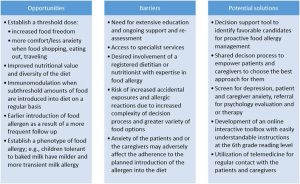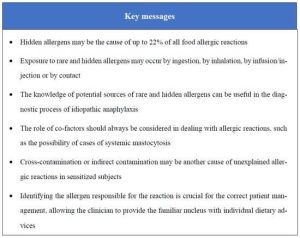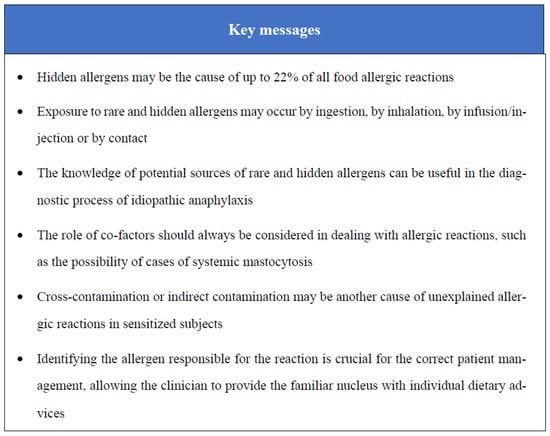1. Walnut Allergic Reaction on The View
Sunny Hostin, co-host of The View (ABC), recently experienced a frightening severe walnut allergy attack on-air. During a segment featuring Greek dishes from Debbie Matenopoulos’s new cookbook, Hostin inadvertently consumed walnuts and nearly panicked upon realizing it.
She even scribbled a “death note” to co-host Alyssa Farah Griffin. On-site Disney medical staff quickly administered Benadryl and readied an EpiPen, stabilizing her condition. Hostin described the experience as “terrifying” yet praised the swift response that prevented disaster .

2. Allergic Reaction Lawsuit Over Shrimp on Flight
Dr. Doreen Benary, a U.S. physician, is suing Singapore Airlines after suffering a severe reaction to shrimp served onboard, despite warning the crew of her shellfish allergy.
The October 2024 flight from Frankfurt to New York had to divert to Paris during the emergency. Benary’s lawsuit alleges airline negligence for serving a known allergen. She’s pursuing compensation for physical and emotional trauma. Singapore Airlines has declined to comment due to ongoing legal proceedings .
3. Nationwide Recall of Milk-Contaminated Chocolates
The Weaver Nut Company issued a recall of multiple chocolate products across the U.S., after undisclosed milk allergens were detected, posing life-threatening risks for those with milk allergies. While no illnesses have been reported, the FDA confirmed undeclared milk content in several batches. Consumers are advised to return any affected products for a refund .
4. Irish Recall Over Almond Mislabeling
In Ireland, Dunnes Stores pulled a batch of its “Luxury Apple Pie” from shelves after finding out it had been mistakenly packaged with “Luxury Pear & Almond Pie”—now a risk for almond-allergic individuals. The Food Safety Authority of Ireland warned of potential anaphylaxis. Customers were urged to return the 750 g product, batch 242 (best before: June 16, 2025) for a full refund .
5. Air Travel Anxiety & Airline Policies Under Scrutiny
A 2024 study by Northwestern’s Center for Food Allergy & Asthma Research surveyed over 4,700 individuals with food allergies. Key findings:
99% reported stress related to traveling with allergies.

76% have avoided travel due to allergy concerns.
35% experienced allergic reactions while traveling; 42% of those required hospitalization.
Airline policies such as seat wiping, cabin announcements, and buffer zones were often not honored inflight .
The Safer Tourism Foundation highlights the spike in allergy-related incidents, advocating for global standards and consistent airline protocols (e.g., pre-boarding for cleaning, buffer zones, epinephrine availability, crew training) as part of its “Put the Nuts Away” campaign .
6 Travel Stories from Allergy Sufferers
Grace, an Australian traveler allergic to dairy, eggs, tree nuts, sesame, kiwi, and seafood, documented her solo journey to Portugal using personal food supplies, thorough cleaning, and seat sanitation to remain reaction-free .
On Reddit, one user with tree-nut allergy shared a similar strategy: pre-informing crews, wiping surfaces, bringing safe snacks, and using laminated allergy cards—a tactic praised for promoting clear communication across language barriers .
Key Takeaways
Preparedness Is Essential: From on‑air emergencies to airline travel and grocery recalls, individuals must stay proactive—carrying EpiPens, Benadryl, and allergy information, especially when abroad.
Systemic Failures: Airlines and food manufacturers often fail to follow through on promised safety measures—crew announcements, accurate labeling, allergen warnings—leading to preventable but serious incidents.
Advocacy Is Gaining Momentum: Lawsuits, recalls, and campaigns like “Put the Nuts Away” and Natasha’s Law signify an increasing global effort to push for transparency, food safety, and allergic awareness.
Positive Role Models: Hostin’s candid sharing, Grace’s travel stories, and Reddit accounts serve as valuable guides, showing that with meticulous planning and advocacy, living with food allergies doesn’t mean sacrificing life and travel experiences.
Practical Tips for Allergy Travels
Always carry two EpiPens, antihistamines, and a doctor’s note.
Pre-board flights to clean your seating area and request allergen-free buffers or announcements.
Pack your own safe snacks, especially when visiting places with different labeling laws.
Prepare translator cards stating your allergies in local languages & share them with restaurant staff.
Stay informed about recalls and food safety alerts in every destination.
Food allergies continue to pose serious daily and travel-related challenges. However, with stronger regulatory frameworks, public awareness, and personal resilience, safer travel and better quality of life are increasingly within reach.




